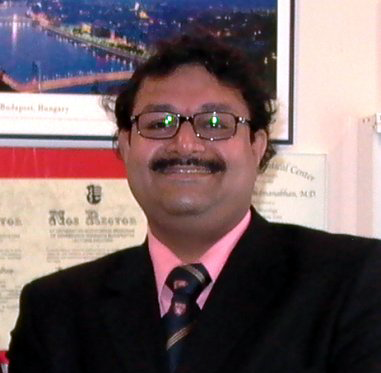By: Dr. Padmanabhan – December, 2015
 In November’s Valley Patriot, I laid out the reason underlying the false government narrative that prescribing pain medicine to patients is the cause of the increasing number of overdose deaths.
In November’s Valley Patriot, I laid out the reason underlying the false government narrative that prescribing pain medicine to patients is the cause of the increasing number of overdose deaths.
I was encouraged that finally after 2 years of drum-beating the false government narrative and concealing the massive impact locally of the Sinaloa drug cartel, the Boston Globe deigned to allow one voice to speak up for people suffering from pain in the form of an opinion piece by Judy Foreman, a Cambridge writer.
Helping patients reduce the pain they suffer from has been a fundamental obligation of physicians from time immemorial. When physicians refuse to do so, they have always been held by other physicians to be a disgrace to the profession.
In Oregon back in 1999, the state medical Board disciplined a Dr. Paul Bilder for giving only Tylenol to a terminally ill cancer patient, among other similar travesties. I dare anyone to claim that was because Purdue Pharma paid off the board.
Slowly over years, despite the ravages of the War On Drugs, patients in pain managed to be heard and get institutional protection.
One strong protection is HCAHPS, the Hospital Consumer Assessment of Healthcare Providers and Systems, which is a mandatory survey that hospitals need to complete for each patient they discharge before Medicare will pay them for that stay. HCAHPS requires hospitals to ask patients to rate how well staff cared about the fact they had pain and how well it was treated. If HCAHPS is not completed properly, the hospital’s reimbursement is docked by 2%.
So if you have to protect the Sinaloa drug cartel and blame doctors and pain patients instead, what do you do?
You ask Medicare to waive the requirement to complete the HCAHPS survey, that’s what.
And that precisely is the recommendation of the much-lauded Governor’s Opioid Addiction Working Group. By seeking a waiver from treating pain in ill patients inside the hospital, we will successfully combat the “Opioid Epidemic” you see. And this way our precious hospitals won’t lose that 2% of the money either. A true win-win. Members of the Governor’s Opioid Addiction Working Group must have been giddy with joy when they came up with that one.
One member of that group, Dr. Sarah Wakeman, is frequently on local media discussing addiction and pain and is part of MGH’s Response to the Opioid Epidemic.
A patient of mine with multiple sclerosis developed large staghorn kidney stones last month and sought help at MGH. She has been on a stable dose of pain medicine for almost 15 years due to her MS, but it wasn’t touching the new stone pain.
I was outraged that MGH doctors refused to prescribe her anything to cover her for the significant increase in pain she suffered as a result of the surgical removal of the staghorn stones. I had to step in and write her a prescription for a week’s supply of strong pain medicine that her MGH doctors should have.
Behold MGH’s Response to the Opioid Epidemic.
Physicians here who refuse to treat pain have nothing to fear from the Massachusetts Board of Registration in Medicine, unlike those in Oregon or California. After all, the Massachusetts Board must also do it’s part to conceal the impact of the Sinaloa drug cartel.
The Board and the Governor’s own legal team have now officially supported a doctor, Barry Levin, who declared under oath that he would never treat pain, for even 3 months, no matter how genuine the patient’s need for pain relief.
Q (By Dr. Padmanabhan): Supposing you have a patient with pain and it takes more than three months to see a pain center, do you give them prescriptions in the meantime to cover their pain?
A (By Dr. Barry Levin): I don’t prescribe chronic pain medication.
Q : Does three months qualify as chronic, Dr. Levin?
A : Yes.
Q : Supposing a patient had a car accident and is in pain and comes to see you, would you continue that patient’s pain prescription until the patient sees a pain center?
A : Would depend on the specifics of their pain. If they are taking a narcotic, then I would not prescribe that medication. (Sworn transcript Jan. 29, 2015)
If only the Governor’s Opioid Addiction Working Group had a Public Service Award, Dr. Barry Levin would win. His loyalty to the pro-drug-cartel government narrative is so total, the government is prepared to ignore that he lied on his license renewal application.
The future has arrived. Enjoy.
harani Padmanabhan MD PhD is a neurologist who specialises in MS in the Boston area. scleroplex@gmail.com
